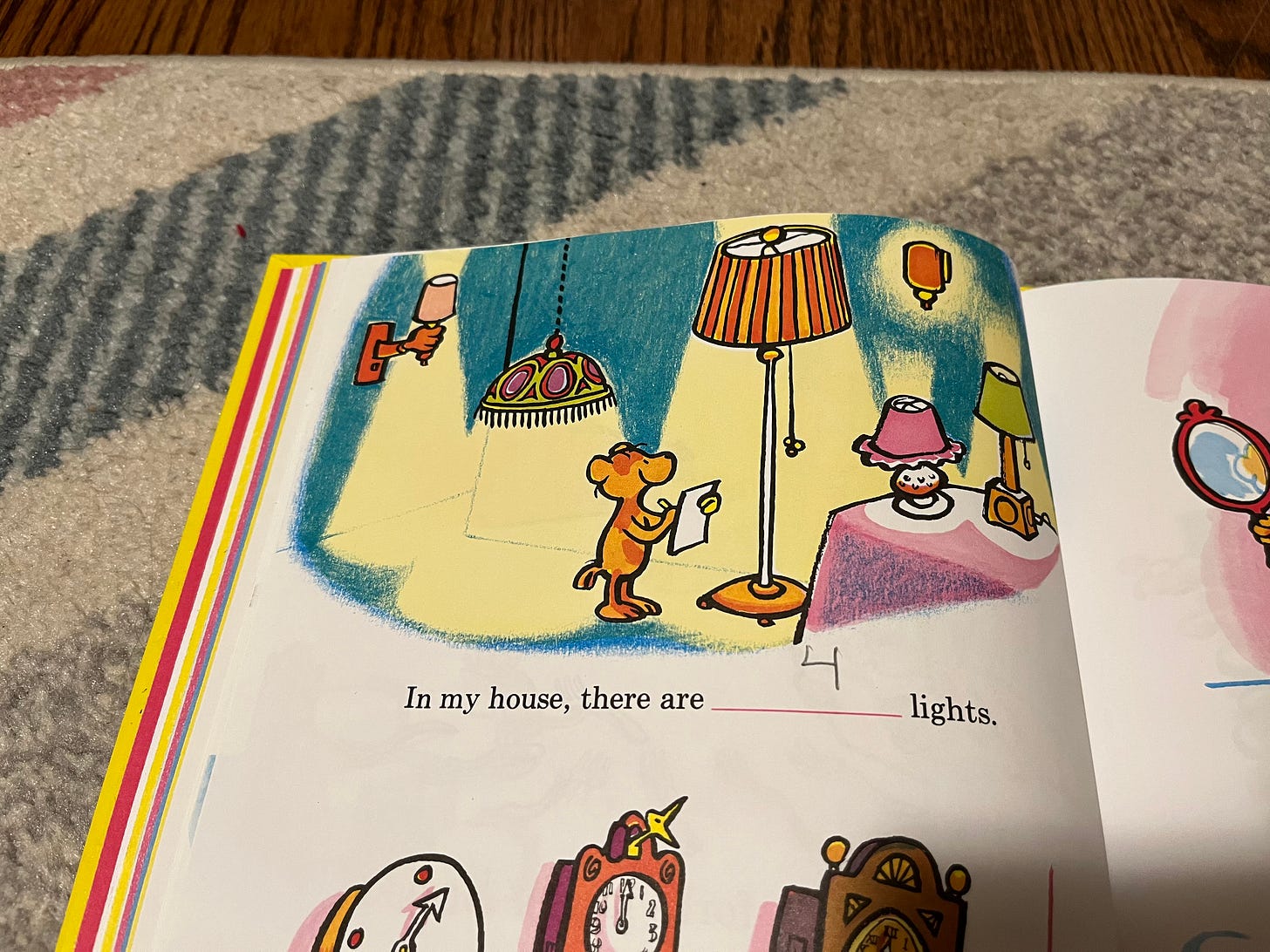You don't know Jack: Balkinization Blog at 20
Yale Law Professor Jack Balkin on starting his epunymous blog two decades ago
Programming Note: This is the fourth installment of The Klonickles, a weekly newsletter focused on online speech and law & technology plus a crazy Kate post-script (see below) for paid subscribers. Thanks for reading and thanks double for pay subscribing. The more you do, the more I have the freedom to research and write.
The Story of Jack Balkin & his Enchanted Blog
An Introduction
I expect that many of the people reading this Substack—particularly those under 30— might not be familiar with one of the internet’s most productive, impactful, and long-running blogs: Balkinization, the epunymously1 titled “unanticipated consequence” of Yale Law School Professor Jack Balkin.
This month marks its 20 year anniversary, which began with three inauspicious sentences on a Friday afternoon in January 2003:
Before I say more about the legal-political impact/internet time-capsule/academic-legal community that Jack began with those few sentences; and before I get to my actual interview with him reflecting on the blog and its legacy, let me just take a moment to explain and introduce Jack, himself.
Professor Jack Balkin was born and raised in Kansas City, Missouri, which in part helps explain why—despite a high-falutin education at Harvard College, Harvard Law School, and Cambridge University—he is still always happy to chat about barbecue or Royals baseball.
The earliest of Jack’s academic writing, beginning in the mid-1990s, centers on constitutional law, rhetoric, and how politics and culture influence both. His study of the interplay of these issues came at a fortuitous time: just as the rise of computing and the internet were changing the landscape, velocity, costs, and democratic valences of information. But it wasn’t until the late Fall 2002 that he started to consider using the medium himself, after the Yale Information Society Project (an institution also founded and built by Jack) held a conference called:
In now hilariously outdated (but then state-of-the-field) language, the conference aimed to examine “the ‘blog’ phenomenon--the increasingly prevalent use of web logs to analyze current events and disseminate opinions.” It featured Glenn Reynolds (author of the then nascent but popular Instapundit, and now
), Mickey Kaus of Kausfiles, and panels that included journalists like Jeff Jarvis and Talking Points Memo’s Josh Marshall.To get a sense of the tech scene at the time, just note that the conference registration excitedly offered participants internet via cable:
Internet access will be available the day of the conference. Please configure your laptop computers to obtain an IP address automatically (dynamically). You will also need a Cat 5 cable to connect.
A few months later, Jack would launch his own “blog” which would be part of both a general “phenomenon” and a phenomenon in itself.
Balkinization Brought Us Together
Balkanization, the term, refers to the “division of a place or country into several small political units, often unfriendly to one another.” But Balkinization, the blog, was the opposite, bringing together ideas, information, and people.
Over the course of two decades, Balkinization morphed from solo-authored by “JB” to a collaboration of legal academics. It moved through stages — from law and politics blog and to the more scholarly academic mainstay it is today. It has hosted dozens and dozens of high profile authors (Cass Sunstein was the first invited to publish on the site.) During the political and legal controversies that surrounded the Bush administration, it had prolific numbers of posts (to get a sense of scale, just scroll through this round-up by Marty Lederman of The Anti-Torture Memos: Balkinization Posts on Torture, Interrogation, Detention, War Powers, Executive Authority, DOJ and OLC).
For a time in the early 2000s, Balkinization and other blogs could be seen as competitors to mainstream news organizations:
But they were also a complement to their reporting, giving journalists easy access to sophisticated ideas and expert commentary. From Marty Lederman’s early-2000s posts on the Bush Administration to Mark Tushnet’s 2016 essay about abandoning the defense crouch of liberalism, the site has maintained a robust presence in current events and political debate.
This month Balkinization is running a 20th Anniversary Symposium with reflections on the blog and the present state of constitutional theory. I highly recommend looking through the posts. But I thought it would be fun to honor the blog that Jack built with a little Isaac Chotiner-style interview (“Uh oh,” Jack said when I told him my plan).
So far this post has been a lot of “tell” but no “show.” That is, I’ve done a lot of talking about Jack. But sometimes the best way to document why and how a person builds something great is not to list all their positive qualities, but to show how that person acts in the world and makes others feel when you talk to them in their own words.
I hope I’ve done that here.
An Interview with Jack Balkin
The following was conducted over Zoom for an hour on a Tuesday evening. It has been edited for clarity, and approved by both parties for accuracy and to ensure mutual humiliation.
Kate Klonick: Hi Jack! Thanks for agreeing to do this at the last minute.
Jack Balkin: Hello, Kate, how are you? You should tell me what we’re doing here.
I know, Jack! We just started I was just saying hello! Jeez. Ok, so I wanted to interview you about the history of Balkinization, I was going to ask you how it all started and then just make fun of you a bunch about how retro the design still is. . .
Oh yes, it’s very retro.
I know. Like, you still have a blog roll on the side, Jack. A blog roll. Like when that was actually some kind of internet currency.
An old-fashioned blog roll! And it has no index by author. No static front page with rotating posts like the fancy pages you see on Lawfare or something. I did a lot of the coding myself, you see.
Ok, we’ll get there, but first we have to talk about how this all started.
Right, well, it was January of 2003. And I was at AALS [the annual meeting for the Association of American Law Schools] and I ran into Glenn Reynolds of Instapundit and Eugene Volokh, who’d just started Volokh Conspiracy. And we all went out for a drink and Glenn and Eugene said to me, “You know, you should do this! You’d be good at it! It’s fun, you’d enjoy it!”
I hemmed and hawed for a little bit. When I got home, I did a little research. Blogger was the central blogging platform in those days. This was before Wordpress. Nowadays you’d use Wordpress or hire someone to create a fancy template. Or you’d do what Lawfare does and have a big static page that changes and rotates. But I picked Blogger and added a bunch of little changes. It was an individual enterprise. I invested so much in organizing the blog at the start, that I’ve never bothered to change it.
The name is perfect, how’d you get the name?
That’s very simple. I tried a whole bunch of ideas but I didn’t like any of them. I asked my wife Margret one day and I said “What should I call it?” and she said, “There’s an obvious name for it: Balkinization!” And there you have it. With an “I” not an “A” of course.
Of course, no one spells it right. People in the UK spell it Balkanisation with an S not a Z. Everyone spells it with two A’s rather than the way my name is spelled. And I get email all the time that says “Dear Mr. Balkan.” But it’s part of the charm, you see. People can’t get the name right.
It’s very charming. So how’d you set the tone? How did that develop? I’m interested in the evolution of it.
Well at the beginning, it was just me. And I’d write about what’s going on in the world. There was a lot going on in the world. And I wrote some early stuff about the Copyright Extension Act and the Supreme Court. Then I plugged my book on the I Ching [Jack is a bit of a polymath and so he of course wrote a whole book on Chinese philosophy, you can find it here] and realized that was a bad idea . . .
Wait, why was it a bad idea? People didn’t want to hear what you had to say about the I Ching?
Basically, I started to realize what I wanted the blog to be and I realized that the blog needed to be about constitutional law and politics.
I did not want a blog about me and a picture of my birthday cake and a picture of a cat—that’s an Instagram feed today, you see.
So I started to write exclusively about law and constitutional theory. There were many blogs that started in the days after 9/11—war blogs they called them at the time. There was plenty to write about.
And how often would you post?
Sometimes once a day, sometimes more, sometimes less. Eventually it took on a certain tone. Eugene’s blog [Volokh Conspiracy] was very ambitious from the start and it started as a group blog, that’s the conspiracy part, you see.
Mmhmm, I put that together.
And then Glenn [Instapundit] was totally different. Glenn would just post a link with a few comments. Like you’d send to a friend in a text message today. That wasn’t me either.
Within a year I’d realized what the focus of the blog was going to be [law and constitutional theory] and that I wanted it to have a serious academic tone. And after about a year of writing myself I decided thatI needed guest bloggers. The first person who guest blogged on Balkinization was Cass Sunstein. You’ve heard of him?
Very funny, Jack.
It used to make you very popular, you see, to have a blog!
And then I really just started going through lists of my friends and asking them to write. I’d invite a person, they’d start out as a guest poster, I’d ask them to write again. If it worked out well we’d arrange something more permanent. I eventually persuaded a group of people to blog, and so Balkinization became a group blog, but the cast of characters has changed over time. There are over 50 people listed on the left-hand side, but only a relatively small number of them have written the bulk of the posting.
How did that change over time? I’m sure that the change to the structure of the blog and who was contributing was also a product of what was happening in the world, how the substantive ideas expressed on the blog were changing.
Yes, exactly. So in the early days we had Marty Lederman at Georgetown, and he just wrote a tremendous amount. He was interested in the war on terror and the legal issues of the Bush Administration and for many years that’s what the blog was mostly about, but people loved that. Those were probably our highest traffic years.
My friend Sandy Levinson loves constitutional theory and politics, so we also had a lot of that. And Sandy loves books. At some point he said, “It’s a real shame that law reviews have stopped doing book reviews.” Book reviews are a great way to discuss ideas, you see. And so we started doing book reviews and in fact, we started doing whole symposiums on books! People liked the symposiums—because it gave them a way to further their own ideas they were interested it and engage with other peoples’ work.
At some point I found that I was writing less for the blog and becoming more of an impresario and editor. I herd cats. I reach out to people. I get them interested in writing. I edit what they write and I put it on the blog. And this has basically meant that right now Balkinization has hosted a lot of symposiums. It’s a place place where legal academics feel like they can write and express themselves and engage. And that has made me extremely happy.
Do you think you’d ever transition from Blogger to something else? Do you think you’d ever try to put things on a Substack or behind a pay wall?
Early on I made the decision not to take any money from advertising. The only advertising we have is the pictures of books by our bloggers that appear on the right hand column. It’s not commercial. Once we had interest from The New Republic about moving the blog there, but I just couldn’t make it my full time job instead of a hobby.
As for Substack, it's a very interesting development. There are a great many people doing wonderful work on Substack. is incredible and I was a subscriber to her newsletter even before she moved it to Substack. My friend started a Substack to accompany her course on propaganda and active measures and she just finds a way to make it an integral part of her teaching and research agenda.
But to do it right takes a lot of time and effort. It’s not what I want to do. I want to be known for my legal scholarship and books. Blogging can complement that for me to an extent but I don’t want it to substitute.
This is slightly off what we were talking about with just Balkinization but you saying that is fascinating to me. Because its funny you want to be remembered for books! Because of course Balkinzation is something you’ll be remembered for! And the Information Society Project and the hundreds of people you’ve mentored or the students you’ve taught! I mean obviously you have tons of influential scholarship, but I just find you to have a much more broad and dynamic legacy.
You become what you didn’t expect you’d be. It turns out I became a person who builds institutions—the Yale Information Society Project and this blog. But if you’d told me that at 35 I was going to be a person who builds institutions, I’d have laughed at you. But now at 66, I’d say yes, that’s exactly what I did.
But you know what that’s also called? It’s called an academic life—you share ideas with people over a long period of time and your knowledge expands, your world expands, your life becomes richer. It is a great life, and I love it.
KKPS
The Kate Klonick Post Script is more general musings, pictures of my dog, and other things I collect around the internet. It’s meant to be fun, personal, whimsical, but smart. Starting in February, it will be paid subscriber only! So please consider subscribing. It is slightly shorter today because of the length of the main post.
What I’m Reading
This New Yorker story on the corrupt and twisted world of South Carolina elite that’s been exposed by the Murdaugh murders.
This piece by Elettra Bietti : A Genealogy of Digital Platform Regulation, which is a great summary of the the history of the field and an excellent source for a reading list.
A seemingly endless stream of amicus briefs in the upcoming Gonzalez v. Google in the Supreme Court.
Conversation of the Day
After my Substack the other day, There are Four Lights, Elon, I got a lot of positive reinforcement from Trekkies. But nothing is ever going to top this text message from Eli Sugarman, whose daughter is apparently using Dr. Seuss to channel her inner Picard:
What I’m Promoting
Call for Applications for Governance in Online Speech Leadership Series!
June 26-28, 2023 at Yale Law School’s Information Society Project
The Governance in Online Speech Leadership Series is an interdisciplinary 3-day workshop that aims to connect those currently working at speech platforms in trust & safety, content moderation, content policy, integrity, and governance with the generation of people in industry, civil society, and academia who pioneered these fields as lawyers, policy-makers, project managers, engineers, stakeholders, and scholars.
It is co-sponsored by the Institute for Rebooting Social Media at Harvard’s Berkman Klein Center, Stanford’s Cyber Policy Center, the Brookings Institution, the Trust and Safety Foundation, the Trust and Safety Professional Association, and the Integrity Institute. It will be a closed-door Chatham House Rule event that brings together a select group of around 35 current industry professionals committed to careers in integrity, online speech governance, and trust & safety for 3 days of educational workshops with industry leaders, academic scholars, and civil society experts in these fields.
Anyone with past, current, or future experience working in industry in online speech governance, trust & safety or integrity in is encouraged to apply by Feb. 24, 2023. If selected, event and lodging will be free with travel funding as needed.
Nena is doing better!
This is my own portmanteau and yes, pun, on naming something after yourself while employing a pun. I’m quite proud of it and not the least bit apologetic.
It’s also, as you may have noticed, why I’m taking liberties with my “Jack” puns in my headings and titles. Did you know, for instance that the first recorded title of the fable of Jack and the Beanstalk was “The Story of Jack Spriggins and the Enchanted Bean”?













Hi KK, thanks for the Nena News update. A former girlfriend had small dog that graced her life and mine for some 17 years (and thus my affinity for Nena). I have never owned a dog but have baby sat more than one for extended periods of time. It still amazes me how just the picture of Nena soothes my nerves whenever I see her. Thanks for that and thanks for this, The Klonickles.
Thank you for this, I am glad that Nena is doing better!